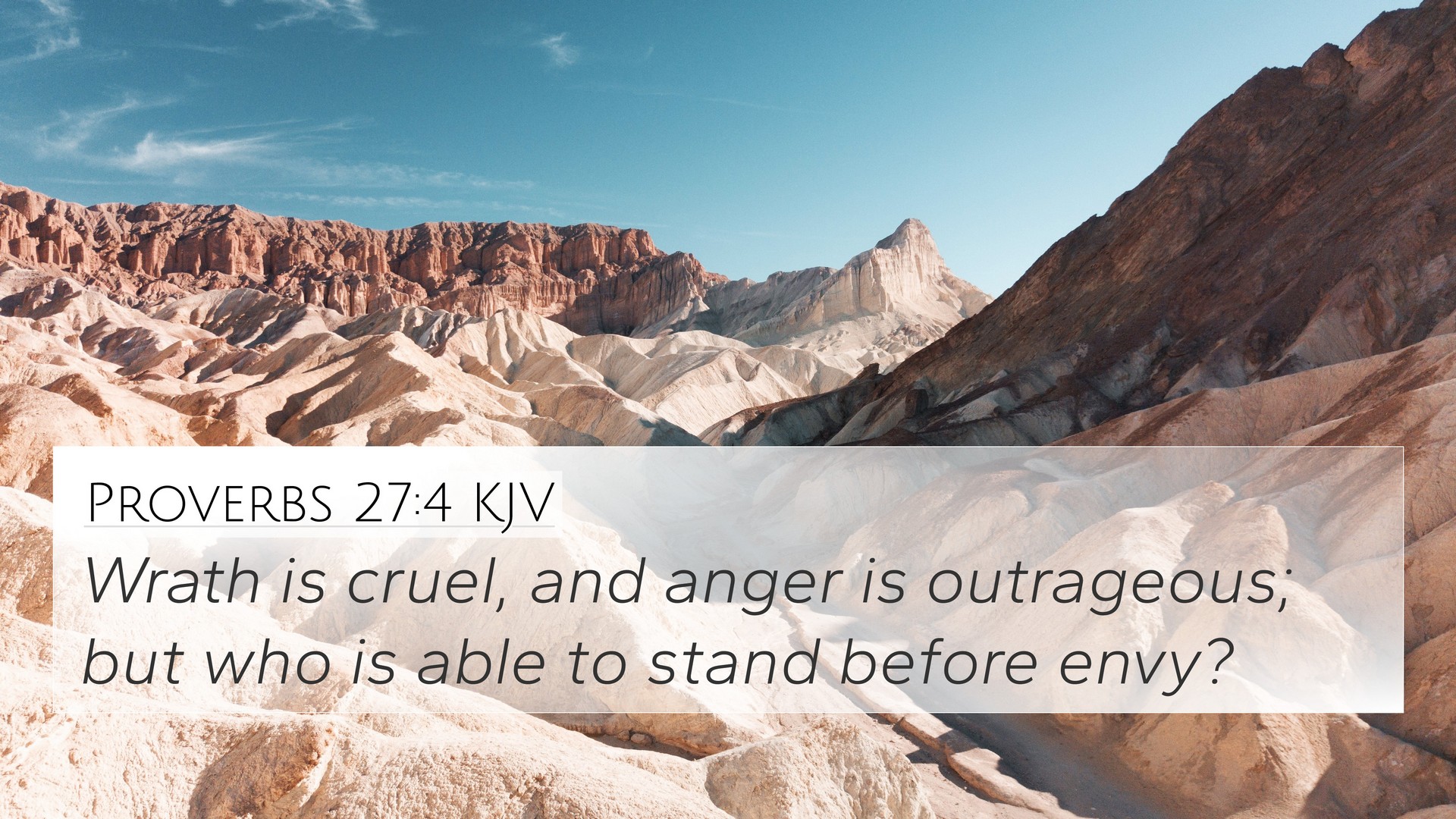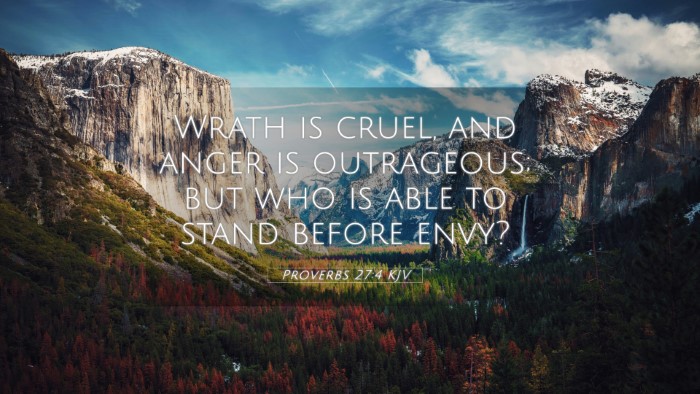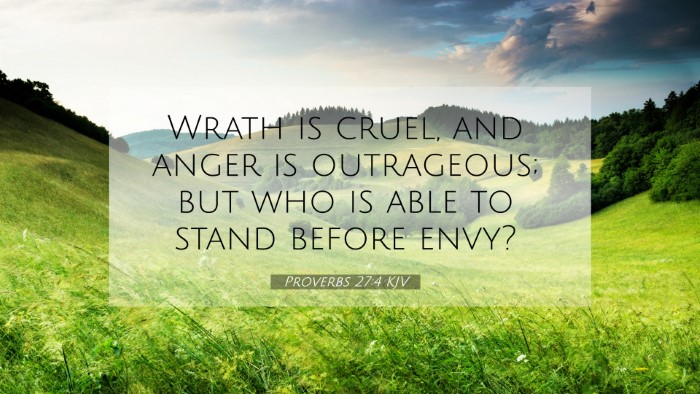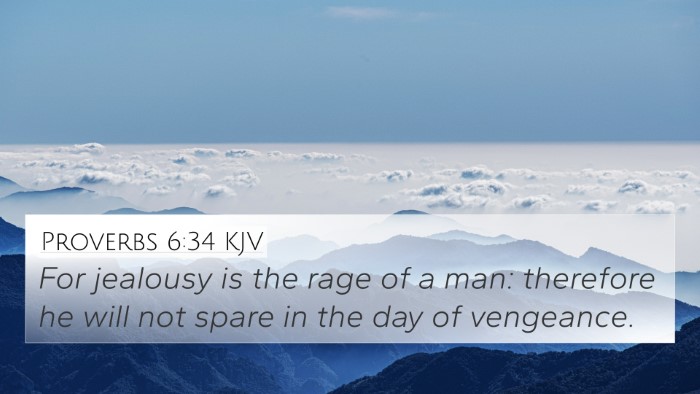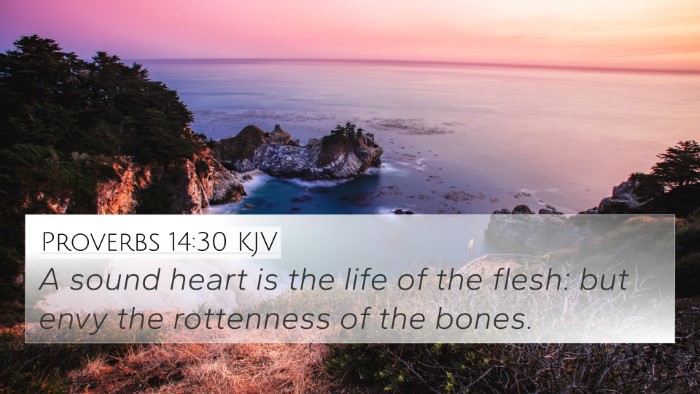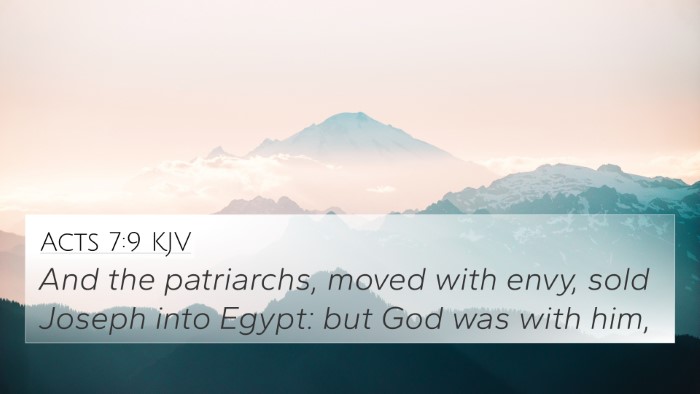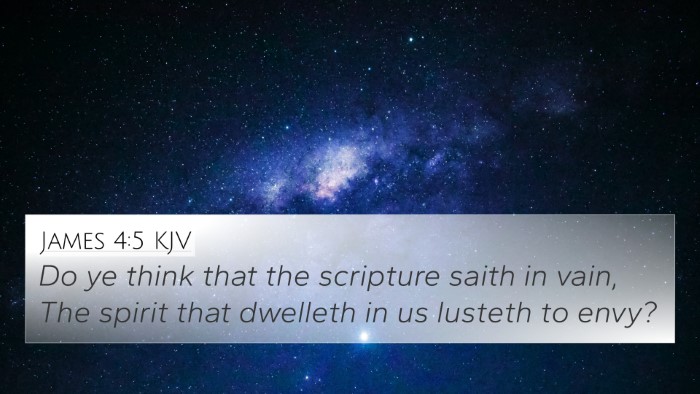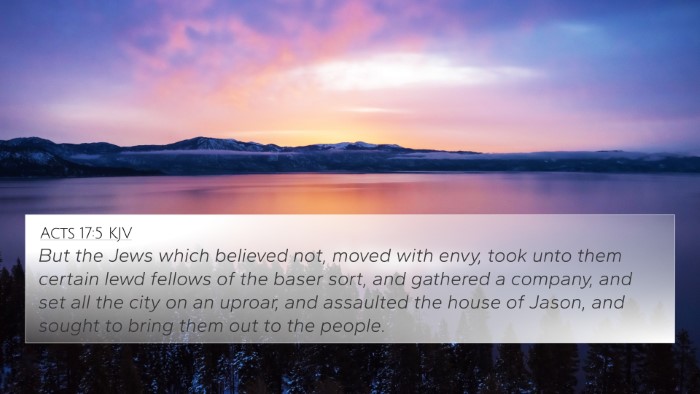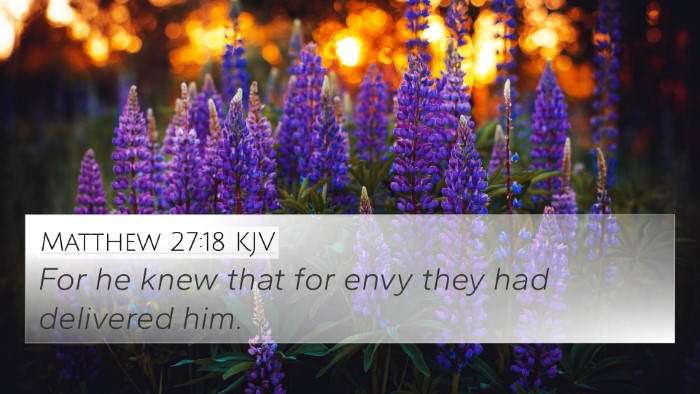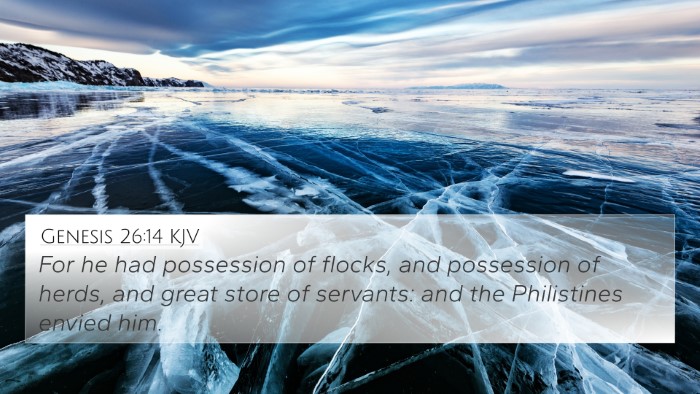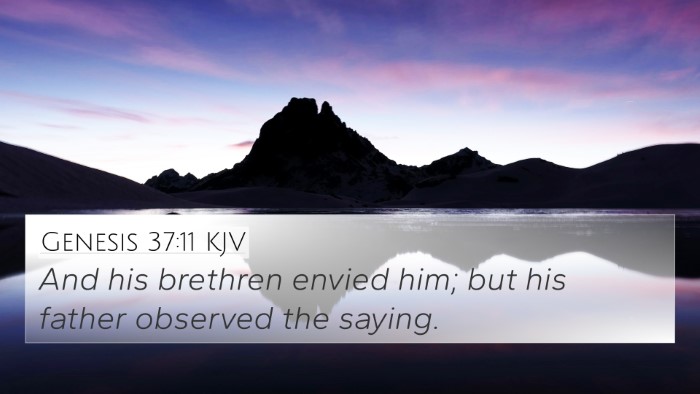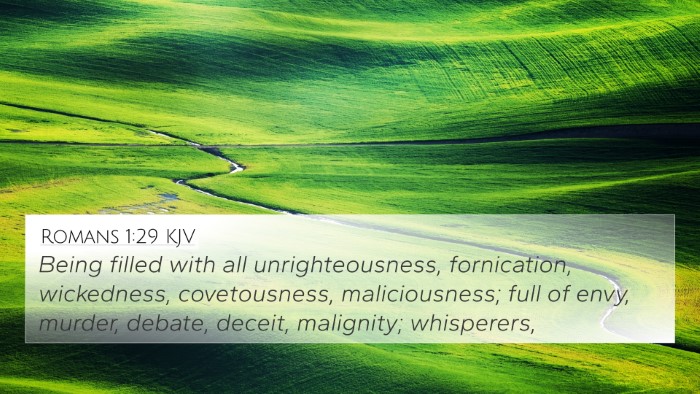Understanding Proverbs 27:4
Proverbs 27:4 states, "Wrath is cruel, and anger is outrageous; but who is able to stand before envy?". This proverb emphasizes the destructive power of jealousy compared to other emotions like wrath and anger. Below is a combined interpretation from renowned public domain commentaries, offering a comprehensive understanding of this verse.
Commentary Insights
-
Matthew Henry:
Henry describes envy as a deep-rooted and damaging emotion, suggesting that while wrath and anger can arise from a momentary provocation, envy is a persistent feeling that can lead to ongoing resentment and strife. He noted that envy can provoke more severe consequences than wrath because it incites a lasting bitterness that can harm relationships and community.
-
Albert Barnes:
Barnes elaborates on the idea that wrath and anger, while formidable, can be managed or mitigated through dialogue and reconciliation, but envy is a more insidious emotion. He suggests that envy often leads individuals to act against others out of jealousy, undermining personal integrity and social harmony.
-
Adam Clarke:
Clarke focuses on the intellectual aspect of envy, noting that it can cloud judgment and lead to irrational decisions. He argues that while one may be able to confront anger with reason, jealousy can consume a person, leading to actions that are both harmful to self and others. His commentary encourages vigilance against envy as a pathway to ruin.
Thematic Bible Verse Connections
To deepen the understanding of Proverbs 27:4, it is pertinent to explore other biblical passages that discuss similar themes of envy, anger, and their impacts. Below are notable cross-references that illustrate these concepts:
- James 3:16: "For where jealousy and selfish ambition exist, there will be disorder and every vile practice." - This verse aligns closely with the message of Proverbs 27:4, highlighting the chaos that stems from envy.
- Galatians 5:19-21: "Now the works of the flesh are evident: sexual immorality, impurity, sensuality, idolatry, sorcery, enmity, strife, jealousy..." - Paul warns against the acts of the flesh, including jealousy, emphasizing its destructive nature.
- Song of Solomon 8:6: "For love is strong as death; jealousy is fierce as the grave..." - This passage poetically indicates the intensity of jealousy, correlating it with death, thus underscoring the fatal nature of envy compared to other emotions.
- Ecclesiastes 4:4: "Then I saw that all toil and all skill in work come from a man's envy of his neighbor." - Here, the author reflects on how envy can drive one’s labor, presenting it as a negative motivation overshadowing genuine ambition.
- Proverbs 14:30: "A tranquil heart gives life to the flesh, but envy makes the bones rot." - This emphasizes the physical and emotional toll that envy can take, reinforcing the message in Proverbs 27:4.
- Proverbs 6:34: "For jealousy makes a man furious, and he will not spare when he takes revenge." - This connects directly with the notion of wrath stemming from envy, reinforcing the proverb's warning.
- 1 Peter 2:1: "So put away all malice and all deceit and hypocrisy and envy and all slander." - Peter’s exhortation aligns with the call to recognize and avoid envy for a healthier communal existence.
Tools for Bible Cross-Referencing
Understanding how to cross-reference Bible verses is crucial for a deeper interpretation. Here are some helpful tools and methods:
-
Bible Concordance:
A concordance provides alphabetized lists of words found in scripture, assisting in locating verses that share themes such as anger and envy.
-
Bible Cross-Reference Guide:
These guides highlight related verses, creating a roadmap for comparative Bible verse analysis and enhancing thematic connections.
-
Cross-Reference Bible Study:
Engaging in cross-reference studies allows readers to explore the nuances of interconnected verses, fostering a profound understanding of biblical teachings.
-
Bible Reference Resources:
Utilize resources that compile various themes, helping to identify scripture related to specific emotions or moral lessons.
-
Bible Chain References:
This method connects multiple verses through thematic links, enabling a broader analysis of subjects like wrath and envy.
Conclusion
Proverbs 27:4 poignantly reflects the challenge of managing human emotions, particularly envy. The insights gathered from Matthew Henry, Albert Barnes, and Adam Clarke emphasize the potential havoc envy can wreak compared to other emotions. Through exploring cross-references, readers can understand the broader biblical narrative addressing these crucial themes, aiding their emotional and spiritual journeys.
